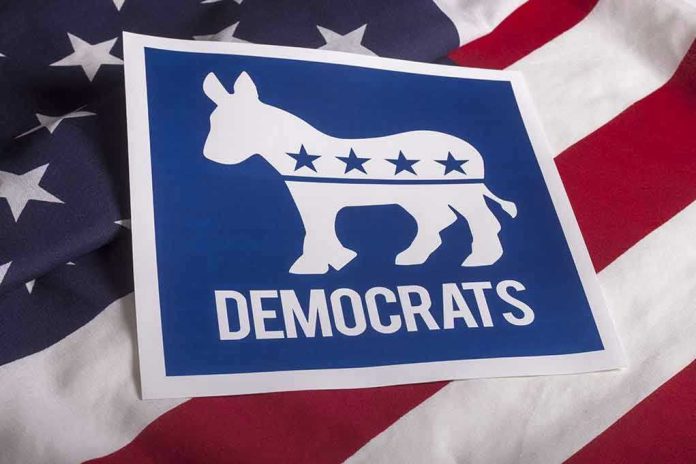🔴 Website 👉 https://u-s-news.com/
Telegram 👉 https://t.me/usnewscom_channel
Chuck Schumer’s decades-long political career hangs by a thread as his own Democratic Party launches an unprecedented mutiny against his Senate leadership following his capitulation to Republicans during crucial shutdown negotiations.
Story Highlights
- Senate Minority Leader faces unprecedented calls for resignation from House Democrats and grassroots organizations
- Democratic consultant warns party moderates are being “swallowed up by the progressive left”
- Internal revolt stems from Schumer’s perceived capitulation during government shutdown negotiations
- No clear successor identified as party fractures along ideological lines
Democratic Party in Full Revolt Against Schumer
The Democratic Party civil war has reached a boiling point, with Chuck Schumer facing the most severe leadership crisis of his lengthy career. House Democrats and liberal grassroots organizations are publicly demanding his resignation as Senate Minority Leader, marking an unprecedented internal revolt against sitting leadership.
The mutiny stems directly from Schumer’s handling of recent government shutdown negotiations, where his compromise with Republicans was viewed as a complete surrender by his own party members.
Democratic consultant Julian Epstein delivered a scathing assessment of the party’s trajectory, arguing that moderates are being “swallowed up by the progressive left.” Epstein’s critique goes beyond Schumer’s age, focusing instead on the fundamental ideological warfare tearing the party apart.
This internal strife represents exactly the kind of self-destructive leftist infighting that has consistently weakened Democratic effectiveness in representing American interests.
Shutdown Deal Exposes Schumer’s Failed Leadership
The government shutdown negotiations in early November 2025 became the catalyst for Schumer’s leadership crisis. Reports emerged November 10th revealing widespread Democratic outrage over Schumer’s deal with Republicans, which party members viewed as an unacceptable capitulation.
The timeline shows how quickly Schumer lost control of his caucus, with calls for his ouster reaching fever pitch by November 17th as media coverage highlighted the scale of internal dissent.
Political analysts note that Schumer’s inability to unite his party during critical negotiations demonstrates the fundamental weakness plaguing Democratic leadership. His failure to effectively represent Democratic interests while maintaining party cohesion has left both progressive and moderate factions questioning his competence.
This leadership vacuum creates opportunities for Republicans to advance conservative priorities while Democrats remain mired in internal conflict.
Party Fractures Along Ideological Battle Lines
The Schumer crisis exposes deep fractures between Democratic moderates and progressives, with each faction blaming the other for the party’s dysfunction. Moderates express concern about the party’s radical leftward drift and its impact on electability, while progressives demand more aggressive resistance to Republican initiatives.
This ideological civil war weakens the Democratic Party’s ability to present a unified opposition to President Trump’s conservative agenda.
The absence of a clear successor compounds the crisis, as no consensus candidate has emerged to replace Schumer. This leadership vacuum threatens to prolong Democratic infighting and legislative gridlock, potentially benefiting Republican priorities and conservative governance.
The situation demonstrates how the Democratic Party’s embrace of extremist progressive positions has created internal contradictions that undermine effective leadership and coherent policy positions.
Sources:
Schumer Faces Resignation Calls from Democrats Over Shutdown Deal – Axios
Schumer Is No Longer Effective, Dems Outraged Over Shutdown Deal – Politico
